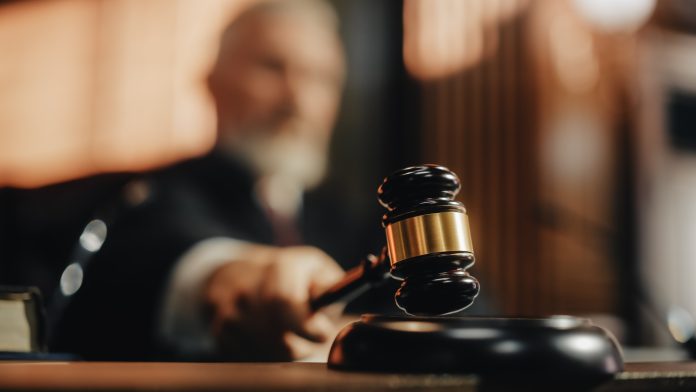
The Supreme Court is set to decide whether a single district judge can halt President Trump’s entire executive order ending birthright citizenship for children of non-citizens, potentially redefining judicial power limits nationwide.
Key Takeaways
- The Supreme Court will rule on whether federal judges can issue nationwide injunctions, not on birthright citizenship itself
- President Trump’s Executive Order 14160 (2025) ended birthright citizenship for children born to non-citizen parents
- Justices Thomas and Gorsuch have previously criticized nationwide injunctions as “legally and historically dubious”
- The upcoming decision could significantly limit judicial overreach or maintain nationwide injunctions as executive checks
- The case represents a critical moment for restoring constitutional balance between judicial, executive, and legislative branches
The Birthright Citizenship Battle
The U.S. Supreme Court stands at a crossroads in a case that could fundamentally reshape the limits of judicial authority in America. At issue is President Trump’s Executive Order 14160, signed in 2025, which ended automatic citizenship for children born on American soil to non-citizen parents. This executive action immediately faced legal challenges, with liberal activists seeking to block its implementation through nationwide injunctions. However, the Court’s focus won’t be on birthright citizenship itself, but rather on whether a single federal district judge possesses the constitutional authority to halt presidential actions across the entire country.
“We do not have a king, we have a president who must abide by the laws,” according to Washington Attorney General Nick Brown
The concept of nationwide injunctions has become increasingly controversial in recent years. These temporary orders effectively block federal policies from taking effect across all 50 states based on the ruling of just one judge in one district. Several conservative justices have previously expressed skepticism about this practice. Justices Clarence Thomas and Neil Gorsuch have been particularly outspoken, describing nationwide injunctions as “legally and historically dubious” and questioning whether they exceed proper judicial authority under the Constitution’s careful separation of powers.
This morning, the Supreme Court took a monumental step towards reining in the administrative state. In the landmark case of Loper Bright Enterprises v. Raimondo, the Court overturned the notorious Chevron Doctrine by a decisive 6-2 vote, with one Justice recused. This ruling is a… pic.twitter.com/frvyCq0Qi3
— CPAC (@CPAC) June 28, 2024
Judicial Overreach vs. Executive Restraint
The central question before the Supreme Court reflects a broader tension within our constitutional system: when does judicial intervention cross the line into judicial overreach? Critics argue that nationwide injunctions represent a dangerous expansion of judicial power, allowing unelected judges to effectively veto presidential actions with sweeping orders that reach far beyond the specific parties and jurisdictions involved in a case. Defenders counter that such injunctions serve as a necessary check against potentially unconstitutional executive actions, particularly when rights are at stake.
“Sometimes you do want nationwide injunctions,” stated by Ilya Shapiro
The Court’s decision could establish new boundaries for nationwide injunctions or uphold them as essential safeguards within our system of checks and balances. A ruling limiting nationwide injunctions would represent a significant victory for the Trump administration and for executive authority more broadly, restoring power to democratically elected officials rather than allowing federal judges to act as super-legislators with veto power over national policy. The case also highlights the importance of President Trump’s judicial appointments, who have consistently shown greater respect for constitutional limits on judicial power.
Restoring Constitutional Balance
This case exemplifies the ongoing struggle to maintain proper constitutional boundaries between the three branches of government. When courts overstep their interpretive role and begin creating rather than interpreting law, they undermine the democratic process and the will of the people as expressed through their elected representatives. The Founding Fathers deliberately designed a system with separated powers to prevent any single branch from accumulating too much authority. Nationwide injunctions risk upsetting this careful balance by allowing individual judges to wield extraordinary power over national policy.
“The idea that courts can’t issue nationwide injunctions is just ridiculous,” said Mike Fox
Beyond the immediate question of nationwide injunctions, this case reflects broader conservative concerns about judicial activism. For decades, progressive judges have used their positions to advance policy preferences that couldn’t win at the ballot box, effectively legislating from the bench on issues ranging from abortion to immigration to religious liberty. The Trump-appointed Supreme Court majority now has an opportunity to restore judicial restraint by clarifying the proper limits of federal court authority and reaffirming that policy decisions belong primarily with elected officials, not unelected judges with lifetime appointments.



